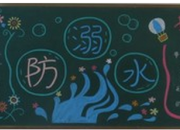英语动词语态-动名词表被动含义
时间:2021-08-311)在need,want,require,deserve和bear等词的后面,动名词用主动形式表示被动含义,其含义相当于动词不定式的被动形式。如:
The house needs repairing(to be repaired).这房子需要修理。
My clothes need washing(to be washed).我的衣服需要洗了。
2)形容词worth后面跟动名词的主动形式表示被动含义,但不能跟动词不定式;而worthy后面跟动词不定式的被动形式。如:
The picture-book is well worth reading.(=The picture-book is very worthy to be read.)这本画册很值得一读。
Such a man as Mr.Smith is not worth helping.(=Such a man as Mr.Smith is not worthy to be helped.)像史密斯先生那样的人不值得帮助。
This plan is not worth considering.(=This plan is not worthy to be considered.)这个计划不值得考虑。

3)某些动词不定式的主动形式表被动含义
a.当nice,easy,fit,hard,difficult, important,impossible,pleasant, interesting等形容词后跟不定式作状语,而句子的主语又是动词不定式的逻辑宾语时,这时常用不定式的主动形式表达被动含义。如:
Japanese is not difficult to learn.日语并不难学。(指日语被学)
The water is unfit to drink.这水不适合喝。(指水被喝)
The piece of music is pleasant to hear.这首音乐听起来很悦耳。(指音乐被听)
This book is easy to read.这本书读起来很容易。(指书被读)
b.当动词不定式在名词后面作定语,不定式和名词之间有动宾关系时,不定式的主动形式表示被动含义。如:
I have a lot of work to do today.我今天有很多工作要做。(work to do指被做的工作)
He has three children to look after.他有三个孩子要照看。(children to look after指孩子被照看)
注意:如果以上句型用动词不定式的被动形式,其含义有所区别。如:
I have some clothes to be washed.我有些要洗的衣服。(衣服不是自己洗)
c.在there be...句型中,当动词不定式修饰名词作定语时,不定式用主动或被动式,其含义没有什么区别。如:
There is a lot of homework to do(to be done).有很多家庭作业要做。
There are some clothes to wash(to be washed).有些衣服要洗。
4)由介词for,on,above,under等构成的短语有时可以表达被动含义。如:
His paintings will be on show tomorrow afternoon.=His paintings will be shown tomorrow afternoon.他的油画作品明天下午展出。
5)表示感官意义的连系动词如smell,feel,taste,look,sound等在句子中常表达被动含义。如:
How nice the music sounds!这音乐听起来多悦耳!
Good medicine tastes bitter.良药苦口。
Our school looks more beautiful than before.我们学校看上去比以前更漂亮了。











